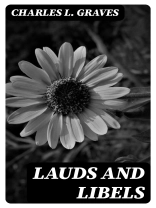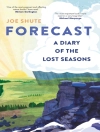In ‘Lauds and Libels, ‘ Charles L. Graves masterfully navigates the dichotomy of praise and criticism in the realm of literary expression, weaving a complex narrative that interrogates the dynamics of societal values and individual perspectives. Employing a sharp wit and a satirical tone reminiscent of the literary giants of the early 20th century, Graves crafts a collection of essays that juxtapose the exaltation of cultural icons against the backdrop of public scrutiny. This text serves not only as a reflection of the era’s socio-political tensions but also as an exploration of the ethical responsibilities of the writer in a rapidly evolving cultural landscape. Graves, a notable figure in literary circles, was influenced by his background in journalism and his keen observations of contemporary society. His experiences with both acclaim and backlash throughout his career informed his nuanced approach to the interplay between laudatory and disparaging narratives. A keen observer of human nature and societal constructs, Graves adeptly captures the precarious balance of offering both accolades and critiques, embodying the complex relationship between the artist and their audience. ‘Lauds and Libels’ is a compelling read for anyone interested in the intricacies of literary critique and cultural commentary. Graves’ incisive insights and eloquent prose will engage scholars and casual readers alike, providing a refreshing perspective on the power of words and the artists behind them.
Sobre o autor
Charles Larcom Graves (1856-1944) was a distinguished English journalist and author, renowned for his wit and literary contributions. Born into an intellectually prosperous family—his father was an Irish bishop, and his brother, Alfred Perceval Graves, was a noted poet and songwriter—he was well-positioned for a life among the literati. Educated at Marlborough and Balliol College, Oxford, Graves went on to carve out a career in the realm of journalism, becoming an editor at the Pall Mall Gazette and later contributing to Punch, a revered magazine famed for its humor and satire.
Charles L. Graves’s literary style is characterized by a playful yet incisive use of language, as reflected in his book ‘Lauds and Libels’ which offers satirical poems that expertly skewer the social and political figures of his time. His work maintains a balance between light-hearted jest and piercing critique, encapsulating the essence of Edwardian satire. Despite the era-specific context of his writings, Graves’s stylistic flair and pointed commentary have earned him a respected place in the canon of English letters, with ‘Lauds and Libels’ serving as a testament to his enduring wit and his capacity to distill the follies of his age into pithy, enduring literature.












